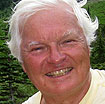Each of the texts for Epiphany is superb. There is not one “bummer in the bunch.”
As a preacher/servant of the Word, this is a grand season for Biblical preaching.
The best resource for sermons is the preacher’s own Spirit-filled imagination. Immerse yourself in the text. Pray. Think. Let your spirit, brain and ingenuity flow. Read resources. Let them simmer in your own kettle of creativity. God will touch you as a person, a sermon will be born, the Word of God will be proclaimed and people will hear God’s voice speaking through you.
In other words, a miracle happens every Sunday when the Word is preached.
Epiphany Sunday
Isaiah 60:1-6. “Arise, shine; for your light has come, and the glory of the LORD has risen upon you” (60:1). “Then you shall see and be radiant; your heart shall thrill and rejoice” (60:5).
At the heart of this text is the awareness that our light has come in the person of Jesus Christ. When we finally see the truth about him, our hearts will have an inner radiance, a joy, a thrill in knowing the gracious love of God for all peoples of this world.
Matthew 2:1-12. This is the story of the “three wise men from the East.” Traditionally, the three wise men have three different colors of skin, symbolic that the love of Christ embraces all races.
Epiphany 2
1 Samuel 3:1-10. The call of Samuel is another one of those “classic” texts of the Bible. We focus on the memorable line, “Speak, LORD, for your servant is listening” (3:10). At the heart of all discipleship is finally coming to the point of listening to the voice of God inside us and around us. We pause and listen to the Divine Voice that speaks of God’s love for all people.
John 1:43-51. We hear that great preaching line, “Come and see Jesus Christ.” That is what evangelism is. Coming and seeing Jesus Christ. Not the programs. Not the pastors. Not the pizzazz of our parish. There is a second great line in this text, “Philip found Nathaniel and said to him, ‘We have found… Jesus'” (1:45). A person can never be an evangelist unless they have found Jesus.
Epiphany 3
Jonah 3:1-5, 10. Within the lectionary system, there is basically one chance to deal with the story of Jonah, and this is the Sunday. God wanted to convert the large city of Nineveh to the ways of the Lord but Jonah didn’t want to go to that city, nor live in it, nor work in it. It was much safer for Jonah to remain in the safety and security of his countryside.
Mark 1:14-20. “Then Jesus said to Simon, “Do not be afraid; from now on you will be catching people.” Many of us mainline denominational Christians are afraid of being evangelists. We need to hear Jesus’ words to his first disciples. “Do not be afraid.” Another focus: Jesus didn’t say, “From now on you will be fishing for people.” Jesus said, “From now on, you will be catching people.” There is a big difference between fishing and catching.
Epiphany 4
Deuteronomy 18:15-20. “I will raise up for them a prophet like you from among their own people; I will put my words in his mouth” (18:18) I have found it is difficult to convince my parishioners that they are prophets and the Living God will put words in their mouths to speak the right words at the right time. The laity usually want to confine this text to professional preachers and forget Acts 2:17-18: “I will pour out my Spirit on all people who shall prophecy.”
Mark 1:21-28. “And the unclean spirit cried out, ‘What have you to do with us, Jesus of Nazareth? Have you come to destroy us?'” (1:24). Jesus replied, “You better believe it.” Then Jesus preached the gospel and cast out demons. Sometimes, the Church has been too much into preaching the gospel and not enough into casting out “the demons” within people, cultures, and nations.
Epiphany 5
Isaiah 40:21-31. “Those who wait for the LORD shall renew their strength, they shall mount up with wings like eagles, they shall run and not be weary, they shall walk and not faint” (40:31). This is the Sunday to preach on the words, truths and music of that great hymn, “On Eagle’s Wings.”
Mark 1:29-39. This is the story of Jesus’ first healing miracle, when Peter’s mother-in-law was cured. Then Jesus healed many people. This sermon focuses on our hunger for healing.
Epiphany 6
2 Kings 5:1-14. This is the story of healing Naaman, the leper. This text is best used to supplement the gospel.
Mark 1:40-45. The healing of the leper is one of ten consecutive healing stories at the very beginning of the Gospel of Mark. The disciples were then sent out to heal people. Ever since, the Church that belongs to Jesus Christ has been involved with healing ministries. Christians imitate Jesus, who was and is the divine healer.

